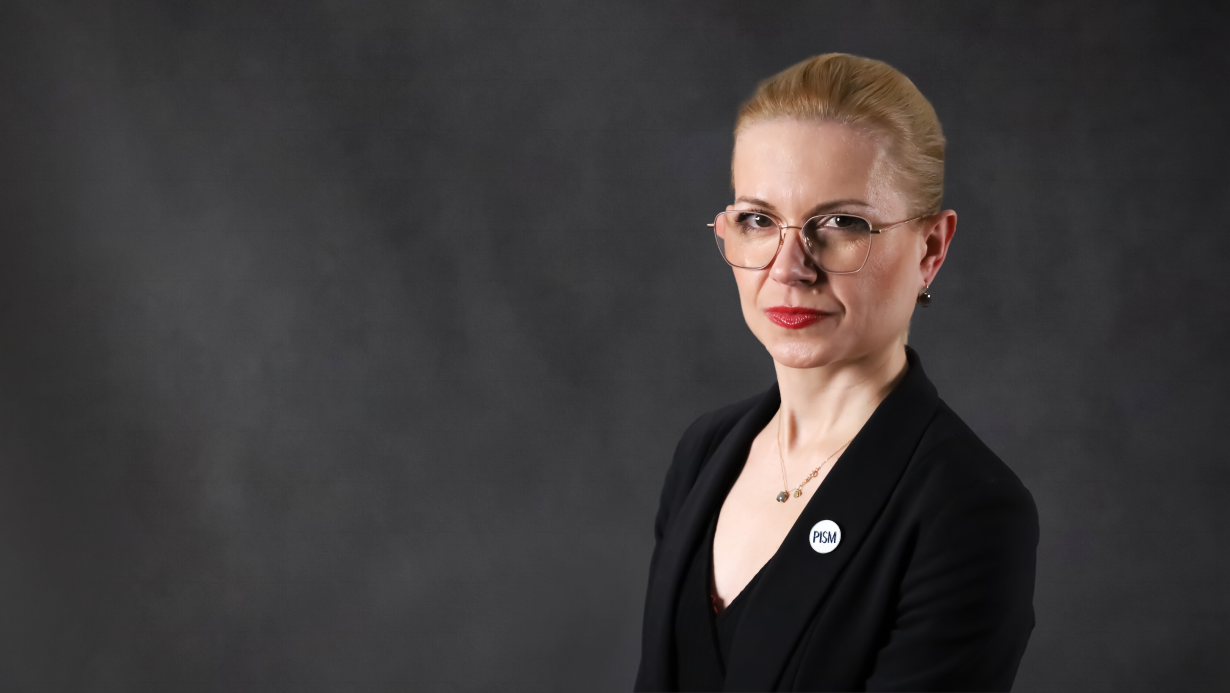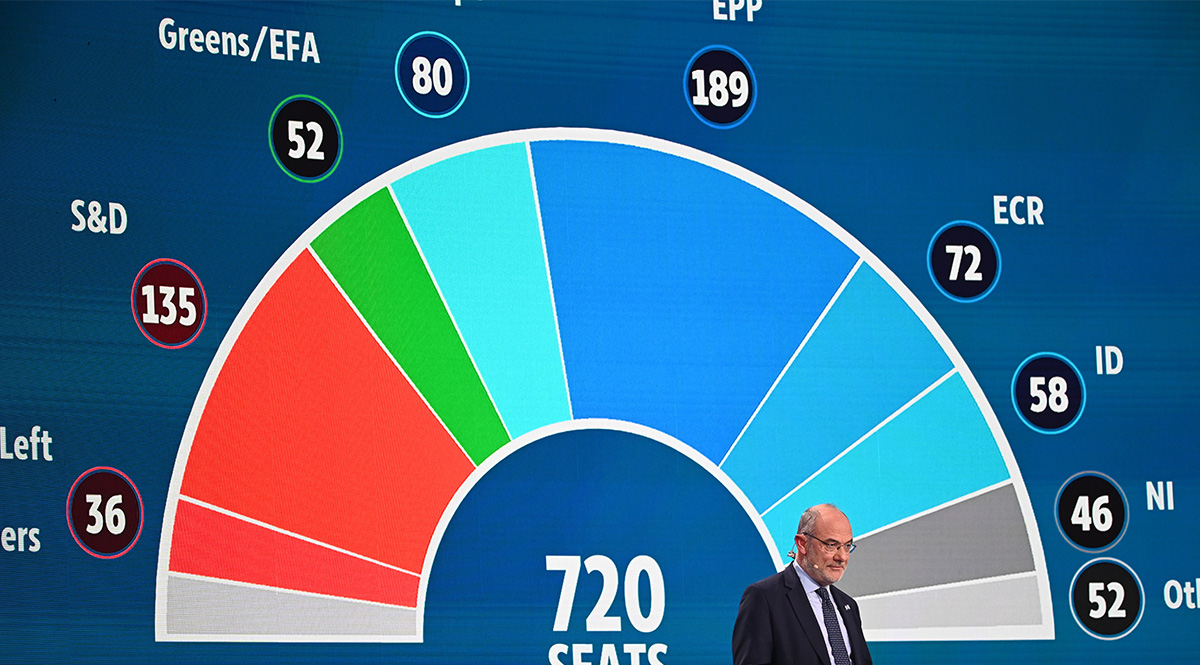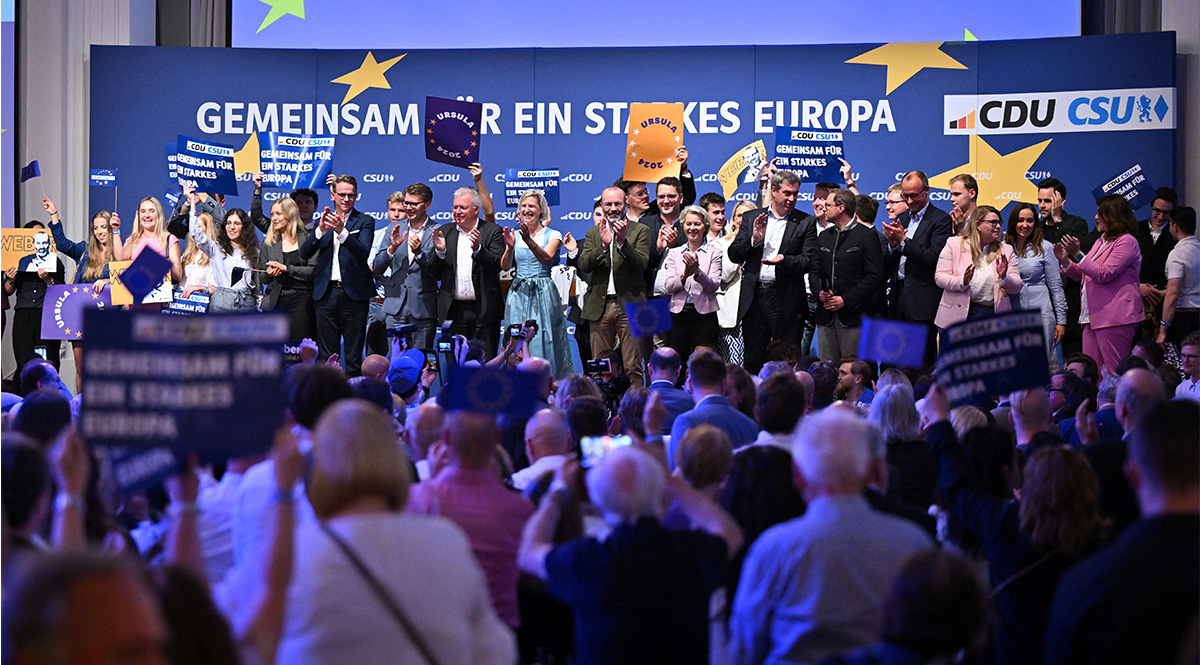The Left Wins EP Elections in the Nordic Countries
Contrary to pan-European trends in the Nordic countries, the left was successful in the elections to the European Parliament (EP), while the radical right showed poor results. This is an effect of several factors, including the priority given by voters in the region to the issue of climate policy and the approach of the winning parties to migration and social policy. This increase in support for left-wing groups may translate into the greater involvement of Northern Europe in the green transformation, protection of minority rights, and EU foreign policy.
 Piroschka Van De Wouw / Reuters / Forum
Piroschka Van De Wouw / Reuters / Forum
What were the results of the European Parliament elections in the Nordic countries?
In Sweden, the largest party on the left side of the political scene, the Social Democrats, took first place (24.8%). Despite optimistic pre-election prospects, the anti-immigration Sweden Democrats, the second-largest party in parliament after the 2022 elections, obtained 13.2% of the votes (2.1 percentage points less than in 2019) and took fourth place. The Left Party took fifth with 11.5% of the votes (over 2 p.p. more), but the Greens came third (13.8%). The centre-right Moderates, who formed the government, retained the second position (17.6%).
Also in Denmark, the left-wing Socialist People’s Party achieved the best result, winning 17.4% of the votes (an increase of 4.2 p.p. compared to 2019). The ruling Social Democrats won 15.6% of the votes, losing 5.9 p.p., but maintained its number of seats in the EP. The greatest losses were suffered by the conservative-liberal Venstre (loss of 8.8 p.p. and 2 seats), also a member of the current cabinet.
In Finland, although the conservative-liberal National Coalition Party in power, led by Prime Minister Petteri Orpo, won the most votes (24.8% of votes), the Left Alliance achieved a surprisingly good result with 17.3% (an increase of 10.4 p.p.), headed by Li Andersson, who received a spectacular 250,000 votes. The far-right Finns Party, which is part of the ruling coalition, recorded a decline to 7.6% (down by 6.2 p.p.).
How to interpret the left-wing’s results?
The EP results turned out to be a surprise, because in all Nordic countries, experts expected an increase in the popularity of right-wing and populist groups that are strongly anti-immigration. The changes in support for the parties did not result in a radically new division of seats, in part because of the increase in the number of EP members from 705 to 720. For voters in the Nordic region, demands related to climate change turned out to be the priority, namely supporting the green transformation and in practice subordinating it to the goals of economic reforms, such as reducing emissions in agriculture. The winning parties also declared the need to tighten EU environmental protection requirements. Social policy issues played an important role, including the risk of limiting social spending in times of economic turbulence and austerity budget planning. This approach resulted in surprisingly good results for the far-left.
This time, migration policy played a smaller role in the campaign, but it has remained a permanent element of public debate for years. Extremely nationalist and anti-immigrant slogans lost their strength because demands for a stricter migration policy were also on the agenda of left-wing parties, which, however, presented a less aggressive and more pragmatic position.
What will be the consequences of the EP election results in the Nordic countries for their internal politics?
The radical right, having lost support primarily in Sweden and Finland, will have a much weaker position in domestic politics, and extreme nationalist and anti-immigrant slogans will lose strength. Currently, centrist (Moderates) and liberal (National Coalition) parties rule in Sweden and Finland.
In Denmark, the social democrats remain the main force, although they began to lose support after entering the coalition with the liberals, and the results of the European Parliament elections only confirmed this trend. This is a manifestation of the weakening acceptance of the Danes for the current government and may result in its reconstruction, possibly towards a minority government.
Similarly, in Sweden and Finland, the weakened position of the Swedish Democrats or the Finns Party after the EP elections may be a reason for a change in government, with more moderate partners joining the coalition, especially since the next elections in the region are not scheduled until 2026. However, none of the Nordic countries should count on early elections in the short term because all of them want to avoid decision-making paralysis, which Sweden and Denmark have faced in recent years.
What will be the consequences of the EP election results in the Nordic countries for foreign and security policy?
The results of the elections primarily confirmed the region’s consensus on the EU’s climate policy. This means implementing the assumptions of the Green Deal and subsequent EU regulations and climate goals will be their priority in the European Union. This may translate into difficulties in developing a consensus within the EU because in other countries, including Central Europe, the principle of a “just transformation” or emission-reduction rules are crucial to their participation, while the share of fossil fuel use is still high.
The European Parliament elections will not change the cross-party consensus on foreign and security policy priorities in the Nordic countries, where eastern policy will remain key, aimed at isolating Russia in the international arena, strengthening deterrence and defence against Russia in NATO, and protecting the external borders of the EU and the Alliance.
There is also agreement on maintaining multidimensional support for Ukraine, including militarily, which is supported by all Nordic countries. The implementation of these demands may be facilitated by the presence of several charismatic representatives of Nordic countries in the newly elected EP, such as former President of Finland Sauli Niinistö.





